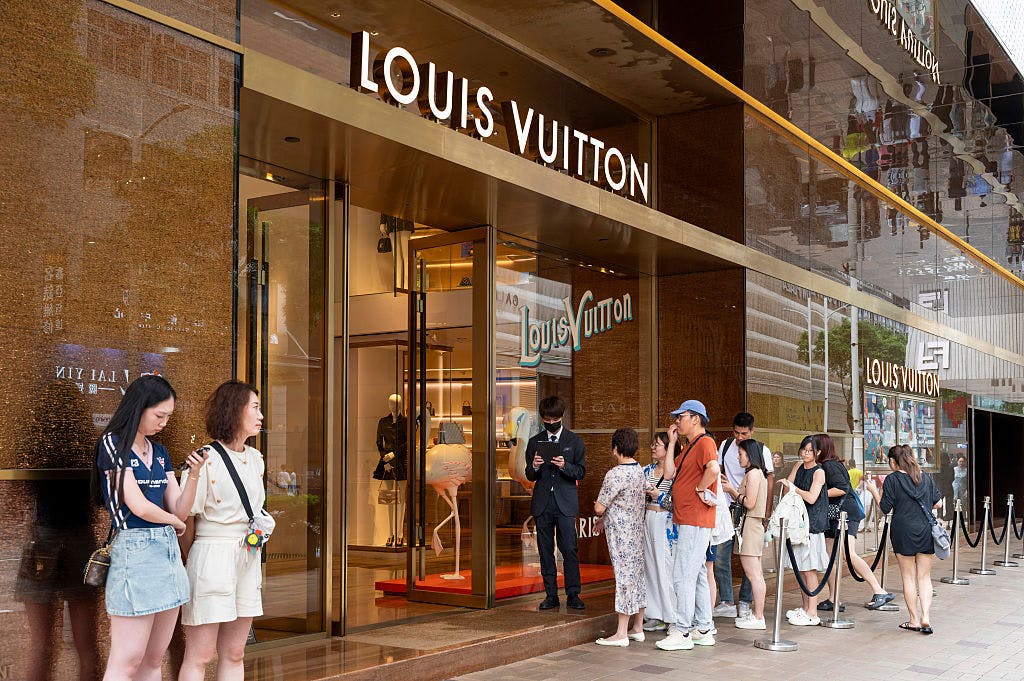LVMH stumbles after missing sales estimates as global luxury demand continues to unwind
High-end shoppers may finally be tightening their purse strings.
Shares of LVMH slipped nearly 8% on Monday after the French luxury goods conglomerate posted weaker-than-expected sales for the first quarter. The company reported $23 billion in revenue, down 2% from the same period last year, falling short of analyst forecasts as sales picked up in Europe but slowed in the US and Japan.
LVMH’s portfolio covers over 75 luxury brands, including Louis Vuitton, Christian Dior, Fendi, Givenchy, and Tiffany & Co.
The dip was driven in part by a 5% sales decline in its core Fashion & Leather Goods unit, along with a slump in Wines & Spirits — two categories that have long been pillars of LVMH’s growth.
While beauty retailer Sephora continued to be a bright spot, the results add to concerns that the postpandemic luxury boom is losing steam amid a murkier global economic outlook.
LVMH is still optimistic despite recent struggles, highlighting strong growth in Europe and buzz around Louis Vuitton’s new cosmetics line, La Beauté Louis Vuitton. The company also saw a solid start in its Watches & Jewelry division, with Tiffany & Co. continuing to roll out new stores globally and Bvlgari debuting new art exhibitions in Shanghai and Seoul.
Shares of luxury rivals including Kering, Burberry, and Hermès were also down slightly in Monday’s trading. LVMH is down 32% over the past year.
